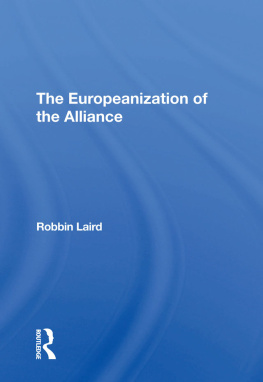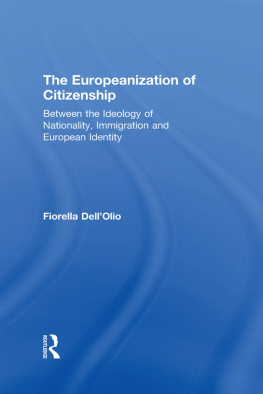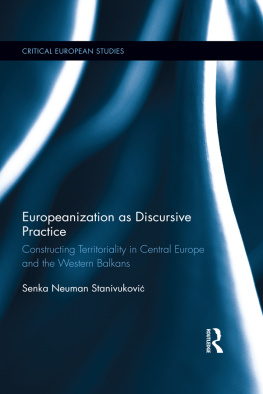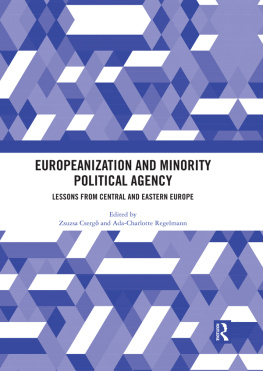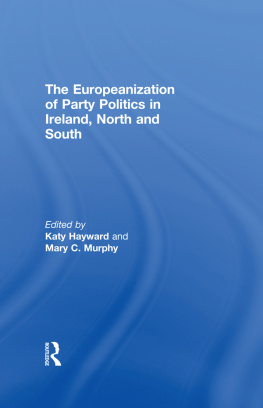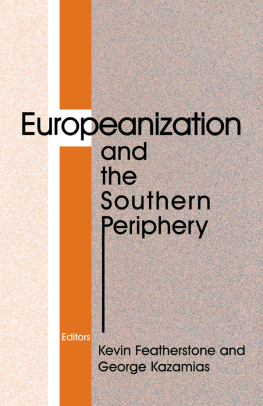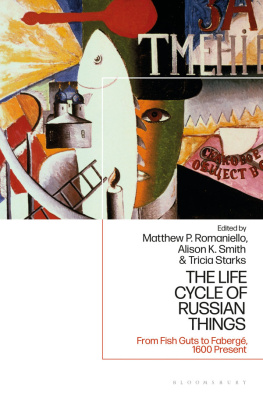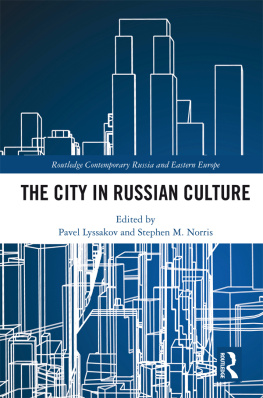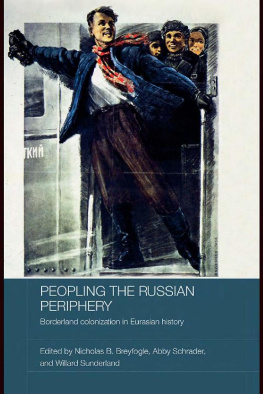Acknowledgments
This volume owes its existence to a research grant entitled The Creation of a Europeanized Elite in Russia: Public Role and Subjective Self awarded by the Leverhulme Trust (RPG-357). This grant supported the preparation of two books, of which this is the second. Among other things, the grant enabled the appointment of a research assistant for two years, supported the archival research undertaken by our consultants in Russia, and allowed the principal investigators some precious time off teaching. We are deeply grateful to the Leverhulme Trust for its support, as well as for its flexibility during the three-year tenure of our grant. We also thank the Ludwig Fond at New College, University of Oxford, as well as the School of Languages, Linguistics, and Film at Queen Mary University of London, which supported the translation of some contributions for our first volume from Russian into English.
The research team we assembled consisted of Alexei Evstratov as our research assistant, Stanislav Andriainen, Elena Korchmina, and Mikhail Velizhev as our archival consultants, and several scholars we invited to participate in our debates and to contribute to our collective volume: Igor Fedyukin, Alexander Iosad, Michelle Lamarche Marrese, and John Randolph. This proved to be a wonderful group, and we wish to express our gratitude to our friends and colleagues for the lively discussions they nurtured through their participation. Our collective work led to the publication of The Europeanized Elite in Russia, 17621825: Public Role and Subjective Self (Northern Illinois University Press, 2016).
To our profound distress, Michelle Marrese tragically died just as this volume came out and before she could see it. Her contribution for us will likely be her last publication. Over the last few years, she had been collecting archival sources for a book manuscript on eighteenth-century noblewomen. This would have been, no doubt, yet another hugely influential monograph, just like her work on womens property rights in imperial Russia. She cared deeply for this book, and it is a huge loss for scholars of eighteenth-century Russia (and beyond) that her indefatigable work in archives will not come to fruition. We dedicate our volume to her, to pay tribute to her inspiring contributions to our field and in gratitude for her friendship.
At different stages of the grant, we benefited greatly from the input of our Advisory Board, which consisted of Wladimir Berelowitch, Simon Dixon, Catriona Kelly, Dominic Lieven, and Derek Offord. Their commitment to our project has been much beyond the call of duty and gave rise to heady and lively discussions, which helped us avoid many pitfalls. Roger Bartlett, Andrew Kahn, and Paul Keenan also participated in some of our internal research meetings and contributed extensive feedback on our work, for which we thank them profusely. We remain, of course, solely responsible for the content of this volume.
We presented individual research papers or intermediary reports of our research at various conferences and in various seminars, notably at the University of Oxford, Queen Mary University of London, the German Historical Institute in Moscow, the annual conference of the Association for Slavic, East European, and Eurasian Studies in Boston, the annual meeting of the Study Group on Eighteenth-Century Russia in Hoddesdon, and the East European History Seminar at Humboldt University in Berlin. The questions and comments we received from panel chairs, discussants, and participants sharpened our thinking greatly. Particular recognition is due to Gary Marker and Richard Wortman, whose constructive skepticism was crucial. We thank the organizers and participants of these events for the opportunity to present our thoughts and for the feedback we received. We also thank our peer reviewers, Jelena Pogosian and Peter Sterns, for their pertinent suggestions and comments.
The project relied on extensive archival work, and for their assistance in locating materials we wish to thank the staff at the State Archive of Ancient Acts, the State Archive of the Russian Federation, the Manuscript Collection of the Russian State Library, the Division of Written Sources of the State Historical Museum, the Russian State Archive of Literature and Art, the Russian State Archive of the Navy, and the Russian State Military Historical Archive, all in Moscow; the Manuscript Division of the Institute of Russian Literature (Pushkin House), the Manuscript Division of the Russian National Library, the Russian State Archive of History, and the Archive of the Museum of Artillery, Engineering, and Communication Corps in St. Petersburg; the State Archive of Novgorod Oblast in Novgorod; and, finally, the National Archives in Kew. Essential library work was undertaken at the British Library in London, the Bodleian Library in Oxford, the Russian National Library in St. Petersburg, as well as the Russian State Library and the State Public Historical Library in Moscow, and we are indebted to these institutions for access to their extensive collections.
Last but not least, we are grateful to Amy Farranto and the other staff at Northern Illinois University Press for their enthusiastic response to our project and their support throughout, as well as to Christine Worobec, the series editor, for her helpful suggestions in the final stages.
Note to the Reader
This volume aims to present an original synthesis intended for a broadly educated reader not necessarily conversant with the many twists and turns of Russian history, while incorporating archival research and the conclusions drawn from an intense collective research project that took place between 20122015. We have therefore tried to provide background knowledge, to define critical terms, and to lighten up our bibliographic apparatus. Where called for, we provide parenthetical acknowledgments of sources and references for further reading, but to the extent possible, we have given preference to English-language publications, in keeping with the aims of this book, and refrained from using endnotes. Scholars of Russian history will hopefully find provocative ideas in this volume, despite having to return to some well-trodden fields, especially in the introduction.
As described in greater length in our acknowledgment section, our research is based in part on the findings of a research group we convened with the financial support of the Leverhulme Trust. This project led to the publication by Northern Illinois University Press of The Europeanized Elite in Russia, 17621825: Public Role and Subjective Self, edited by ourselves and Alexei Evstratov, a volume organized as a series of case studies. The present monograph incorporates additional research and proposes an original synthesis of our findings.
Dates are given according to the old Julian calendar, since this is what our protagonists used. For the transliteration of Russian names and terms, we adopted the Library of Congress transliteration system, with a minor simplification consisting of reducing the frequent ending -kii (as in Dostoevskii) to -ky (Dostoevsky), except in bibliographic references. We also adopted the accepted English spelling of well-known figures. Translations from foreign-language sources are ours unless otherwise noted.


